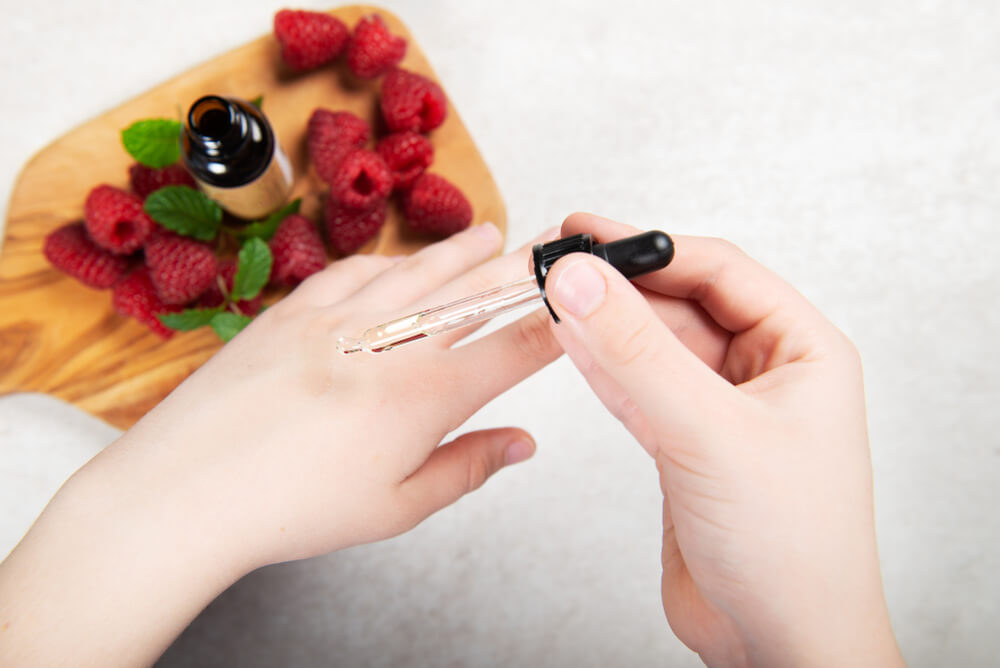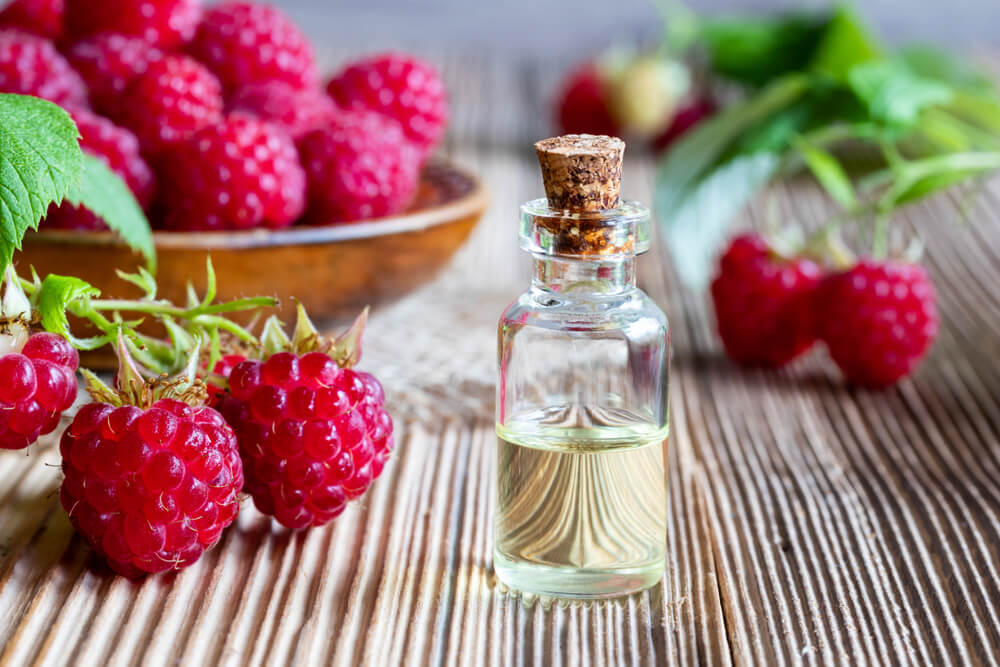Are you tired of chemical-laden sunscreens that make your skin sticky and irritated? If so, you might be interested in exploring natural alternatives like red raspberry seed oil. But is red raspberry seed oil truly effective in protecting your skin from harmful UV rays? In this article, we will delve into the world of red raspberry seed oil and uncover its potential as a sunscreen.
Table of Contents
What is Red Raspberry Seed Oil?
Red raspberry seed oil is derived from the seeds of the red raspberry fruit (Rubus idaeus). This natural oil is rich in essential fatty acids, antioxidants, and vitamins, making it a popular ingredient in various skincare products. With its vibrant red color and distinct aroma, red raspberry seed oil has gained attention for its potential skincare benefits.
Is Red Raspberry Seed Oil an Effective Sunscreen?
One of the key reasons red raspberry seed oil is often touted as a sunscreen is its potential Sun Protection Factor (SPF). SPF measures the level of protection a sunscreen provides against harmful UVB rays. While studies have shown that red raspberry seed oil has an estimated SPF between 28 and 50, it is important to note that this is a rough estimate. Further research is needed to determine the exact SPF value of red raspberry seed oil.
The natural components present in red raspberry seed oil, such as alpha-tocopherol (vitamin E), alpha-linolenic acid (omega-3 fatty acid), and ellagic acid, contribute to its potential sunscreen properties. These components are believed to act as antioxidants, which help neutralize free radicals and protect the skin from UV-induced damage.
Comparison with Traditional Sunscreens
There are some notable differences between red raspberry seed oil and conventional sunscreen ingredients. Chemical sunscreens often contain synthetic compounds like oxybenzone and avobenzone, which absorb UV rays and convert them into heat. On the other hand, red raspberry seed oil provides a physical barrier on the skin, reflecting and scattering UV rays.
One advantage of using red raspberry seed oil as a sunscreen is its natural formulation. It is free from harmful chemicals commonly found in commercial sunscreens, making it a potentially safer alternative for those with sensitive skin. However, it is important to consider that red raspberry seed oil may not offer the same level of UVA protection as some chemical sunscreens.
| Aspect | Red Raspberry Seed Oil | Chemical Sunscreens |
|---|---|---|
| Sunscreen Properties | Offers physical barrier, reflects and scatters UV rays | Absorbs and converts UV rays into heat |
| Formulation | Natural and free from harmful chemicals | Contains synthetic compounds |
| UVA Protection | May not offer the same level of UVA protection | Some chemical sunscreens provide UVA protection |
| Water Resistance | Reasonable water resistance, but reapplication is recommended | Varies, some sunscreens offer higher water resistance |
| Allergies/Side Effects | Perform a patch test, possible allergies or sensitivities | May cause allergies or skin irritation |
| Additional Benefits | Antioxidant properties, moisturizing, anti-inflammatory effects | N/A |
Red raspberry seed oil is also a reasonable water resistance, although regular reapplication is still recommended, especially after swimming or sweating. It's crucial to perform a patch test before using red raspberry seed oil, as allergies or sensitivities are possible.
In addition to sun protection, red raspberry seed oil offers other benefits for skin health. Its antioxidant properties help combat free radicals while moisturizing effects keep the skin hydrated. The oil's anti-inflammatory effects can also soothe irritated or inflamed skin. Chemical sunscreens, on the other hand, do not provide these additional benefits.

How to Use Red Raspberry Seed Oil as a Sunscreen
Using red raspberry seed oil as a sunscreen requires proper application for maximum effectiveness. Start by cleansing your skin and patting it dry. Then, dispense a small amount of red raspberry seed oil and gently massage it onto your face and exposed skin. Ensure that you cover all areas thoroughly and evenly.
It is recommended to reapply red raspberry seed oil every two hours or more frequently if you are sweating or swimming. Keep in mind that red raspberry seed oil should not be used as a standalone sunscreen during prolonged sun exposure or in extreme conditions. Pair it with protective clothing, hats, and sunglasses for comprehensive sun protection.
Potential Side Effects and Allergies
When considering the use of red raspberry seed oil as a sunscreen, it is important to be aware of the potential side effects and allergies. Here are some key points to keep in mind:
- Perform a patch test: Before applying red raspberry seed oil all over your skin, it is advisable to perform a patch test. Apply a small amount of the oil to a small area of skin and wait for 24 hours to observe any adverse reactions.
- Watch for allergic reactions: If you experience any discomfort, redness, itching, or swelling during the patch test or after applying the oil, discontinue use and consult a healthcare professional.
- Consult a healthcare professional: If you have a history of skin allergies or sensitivities, it is recommended to consult with a healthcare professional before using red raspberry seed oil as a sunscreen.
- Check for cross-reactivity: Individuals with known allergies to berries or other fruits should exercise caution when using red raspberry seed oil, as there is a potential for cross-reactivity.
By being mindful of these potential side effects and allergies, you can make an informed decision about whether red raspberry seed oil is suitable for your skin.

Other Benefits of Red Raspberry Seed Oil for Skin Health
Red raspberry seed oil not only has potential sunscreen properties but also offers various other benefits for the health of your skin. Here are some additional advantages of using red raspberry seed oil:
- Moisturizes the Skin: Red raspberry seed oil is highly moisturizing, helping to keep the skin hydrated and supple. It forms a protective barrier on the skin, preventing moisture loss and maintaining optimal hydration levels.
- Anti-aging Effects: The antioxidants found in red raspberry seed oil, such as vitamin E and polyphenols, help combat free radicals that contribute to premature aging. Regular use of the oil may help reduce the appearance of fine lines, wrinkles, and age spots.
- Soothes Inflammation: Red raspberry seed oil possesses anti-inflammatory properties that can help soothe skin irritations and reduce redness. It may be beneficial for those with sensitive or irritated skin conditions, such as eczema or rosacea.
- Enhances Skin Elasticity: The essential fatty acids present in red raspberry seed oil, including omega-3 and omega-6, promote collagen production and enhance skin elasticity. This can contribute to a more youthful and firm appearance.
- Improves Skin Tone: The natural antioxidants in red raspberry seed oil can help even out the skin tone and reduce the appearance of hyperpigmentation, such as sunspots or age spots. It can help achieve a more radiant and balanced complexion.
- Nourishes and Revitalizes: Red raspberry seed oil is rich in vitamins and nutrients that nourish the skin, such as vitamin A and vitamin C. These nutrients help to revitalize and rejuvenate the skin, leaving it looking healthy and vibrant.
- Protects Against Environmental Damage: The antioxidants in red raspberry seed oil provide protection against environmental stressors, like pollution and UV radiation. This helps to minimize the damage caused by free radicals and maintain the overall health of the skin.
- Reduces Acne and Breakouts: The anti-inflammatory properties of red raspberry seed oil can help calm acne-prone skin and minimize breakouts. It helps to regulate sebum production and unclog pores, reducing the chances of acne formation.
- Supports Wound Healing: Red raspberry seed oil has been found to promote wound healing and tissue repair. It aids in the regeneration of the skin, helping to speed up the healing process and reduce the risk of scarring.
- Gentle and Suitable for All Skin Types: Red raspberry seed oil is generally well-tolerated by most skin types, including sensitive skin. It is non-comedogenic, meaning it won't clog pores, making it also suitable for acne-prone individuals.
Remember that while red raspberry seed oil has potential benefits for the skin, individual results may vary. It is always recommended to perform a patch test and consult with a dermatologist before incorporating any new skincare product into your routine.
Conclusion
Is red raspberry seed oil an effective sunscreen? While it does show potential as a natural alternative to chemical sunscreens, further research is needed to determine its exact SPF value and efficacy. Red raspberry seed oil provides a physical barrier, reflecting and scattering UV rays. However, it may not offer the same level of UVA protection as some chemical sunscreens.
If you decide to try red raspberry seed oil as a sunscreen, remember to reapply it regularly and complement it with other sun protection measures. Perform a patch test beforehand to rule out any potential allergies or sensitivities. Lastly, consult a healthcare professional or dermatologist for personalized advice based on your individual needs.
Incorporating red raspberry seed oil into your skincare routine can offer additional benefits such as moisturization and anti-inflammatory effects. Embrace the potential of natural skincare alternatives while prioritizing your skin's health and protection.
Must Read: Natural Home Remedies to Get a Fresh and Younger Skin


